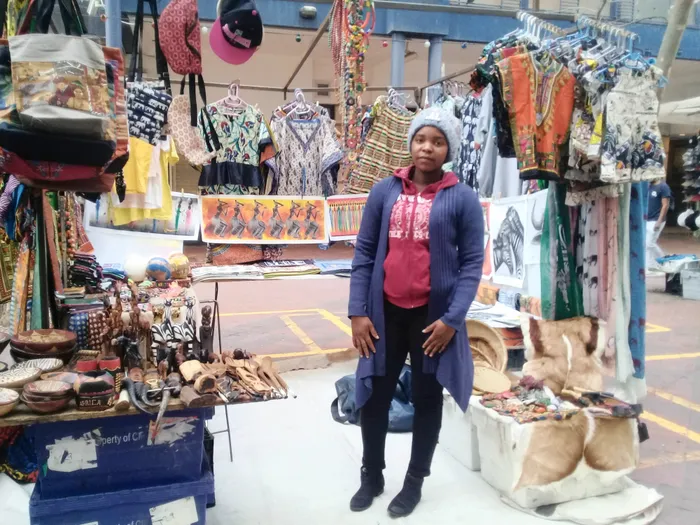#WorldRefugeeDay: Refugees feel ostracised by South Africans

Violet Smart came to Cape Town more than a year ago to seek a better life and employment opportunities. She was a domestic worker before she started selling African clothes. Picture: Kauthar Gool/Cape Argus Violet Smart came to Cape Town more than a year ago to seek a better life and employment opportunities. She was a domestic worker before she started selling African clothes. Picture: Kauthar Gool/Cape Argus
Cape Town - World Refugee Day, commemorated on Thursday, places the spotlight on those who fled violence and persecution in their home countries and sought refuge in another country.
In 2017, more than 65 500 refugees and 230 000 asylum-seekers were living in South Africa, with many flocking to the country because of economic hardship and political unrest in their own home countries.
Malawian refugee Violet Smart came to Cape Town more than a year ago to seek a better life and employment opportunities.
“I started working as a domestic worker before selling African clothes here in Cape Town. I don’t even own the shop, I sell the clothes for someone else,” she said.
A refugee, who gave her name as Bernadette, said she is a vendor from Angola who has been in the country for more than 10 years.
Many refugees feel ostracised by South Africans, who often shun them because they do not speak the languages of the country, she said.
“People swear at us when we are on the trains because we cannot speak Xhosa or Zulu, and they look down on us because we are not from this country,” she said.
The Scalabrini Centre of Cape Town, a city NGO, offers a number of programmes to refugees, migrants and asylum-seekers, often functioning as a safe haven for foreigners trying to find their feet.
Sally Gandar, head of advocacy at the centre, said: “We offer a variety of services and have an English school on site where people can learn to speak the language for a small fee.”
She said that although some of
the programmes offered by the
Scalabrini Centre required foreigners to have legal documentation, their advocacy and legal services and advice were open to all.
“We try to assist people wherever we can when navigating the asylum system in South Africa, because it
can be quite daunting for them. Our welfare department provides humanitarian assistance to people. This does include advocating for people to be placed in shelters, and, of course, those shelters will have their own requirements for who can enter.”
Many young refugees want to
further their education but are often unable to do so because there are not many bursary schemes on offer for them, said Louse Madonna, a 20-year-old refugee from the Congo who sought refuge in South Africa with her family 13 years ago because of war and unrest her country faced.
Louise Madonna, a 20-year-old refugee from the Congo who sought refuge in South Africa with her family 13 years ago because of war and unrest. Picture: Kauthar Gool/Cape Argus
“I was only five years old at the time, but I remember a few days before we came to South Africa our home was attacked, and so, because we were unsafe, my parents decided that we should just leave,” she said.
“I am in matric and would like to study public administration next year at university, but because there is not much funding available for international students, even if I do make the criteria required by these scholarship funds, I will still not be able to get the money to study and obtain my degree.”
Many families have been torn apart because of forced migration, with
relatives now living in different
corners of the globe.
Jeanpy Nzembo, a refugee from the Congo, left his home a year ago after his family were put in danger because of their political affiliations.
“My dad is a member of the Movement for the Liberation of the Congo, and because our lives were put in danger, we left the country. I have no family here; my family members are living in
different countries overseas. I was working as a teacher in the Congo, but now I am unemployed in this country.”
Jeanpy Nzembo, a refugee from the Congo, left his home there a year ago after his family were put in danger because of their political affiliations. Picture: Kauthar Gool/Cape Argus
@TheCapeArgus
kauthar.gool@inl.co.za